Question Time debate: Election leaders fact-checked
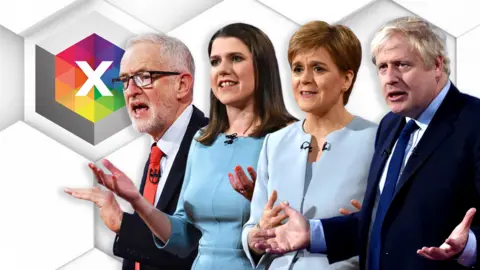 BBC
BBCParty leaders Boris Johnson, Jeremy Corbyn, Nicola Sturgeon and Jo Swinson have each faced a live audience during a special edition of Question Time.
The BBC Reality Check team has analysed some of their claims.
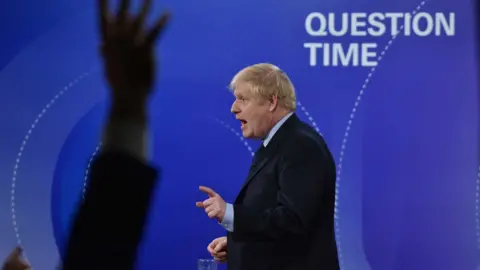
Claim: Boris Johnson, the Conservative Party Leader, asked about his government's record on GPs, said that in the last year, "we have 5,000 more doctors, I appreciate that's not the same as GPs".
Reality Check: In 2015, the Conservative government pledged to recruit 5,000 more GPs by 2020. Four years into the five-year target, there are about the same number of GPs working in the NHS in England (34,114 in June) as there were in 2015 (33,850 in the same month).
Looking at all doctors working in hospitals and community health services in England, the NHS stats appear to show an increase of about 3,000, not 5,000.
Mr Johnson didn't specify where he was talking about, but he is only responsible for the NHS in England.
He also said that there were 17,000 more nurses now than there were in 2010, which is true looking just at general nurses. If you look at all types of nurses the increase is more like 8,000 as there have been falls in some specialisms like learning disabilities and mental health.
Claim: Boris Johnson said "if you look at what we've done just last year we built 240,000 homes which was more than any year… in the last 31 years bar one".
Reality Check: There are figures from the Ministry for Housing, Communities and Local Government that do show 240,000 new homes were built last year. Those figures include conversions and changes of use (for example from offices to flats) as new homes. The number is the biggest since 2001 but the figures only go back that far.
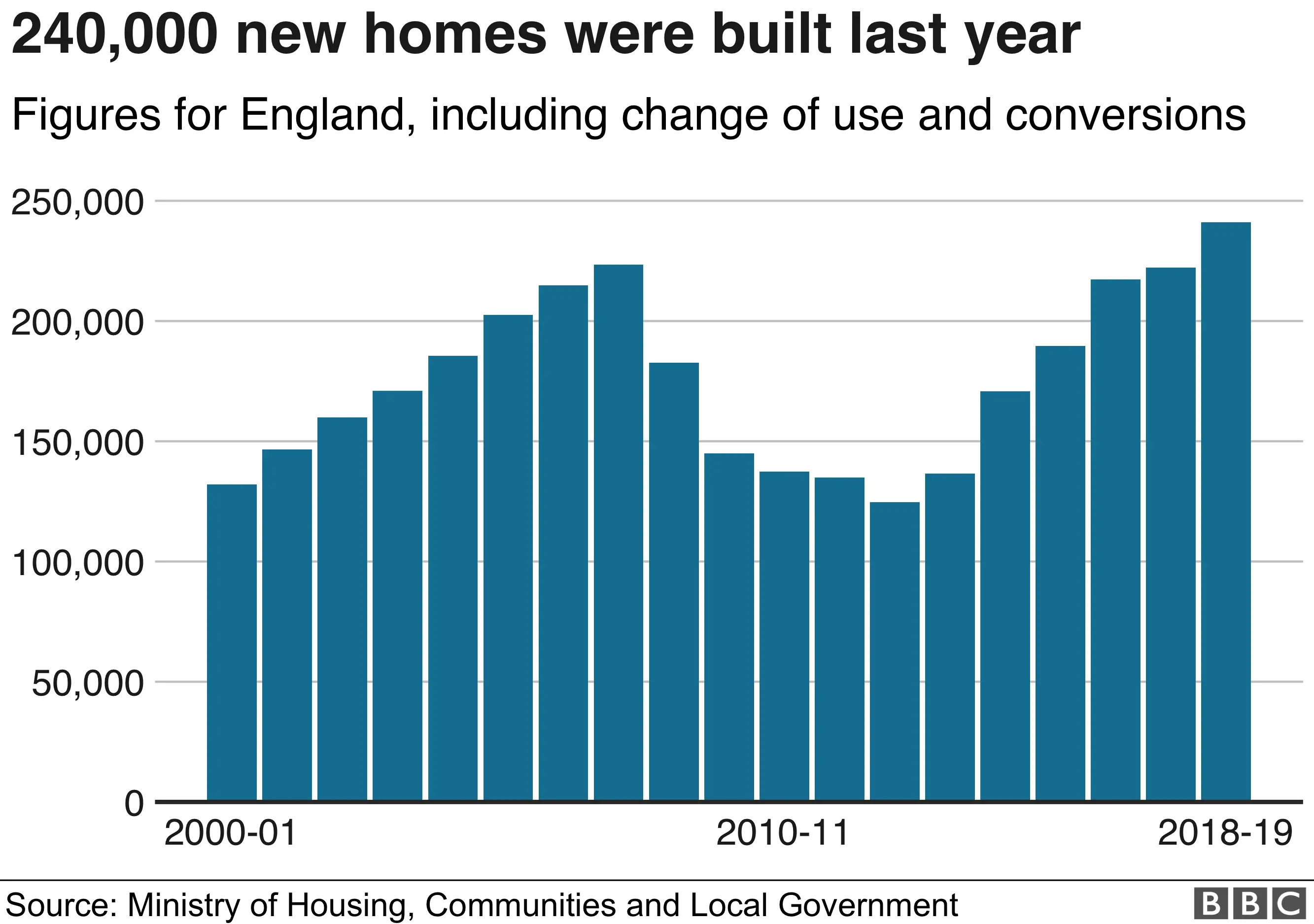
There's another set of stats from the ministry that says that 164,000 new-build homes - ie excluding conversions - were completed last year.
That total was the fourth highest in the past 31 years.
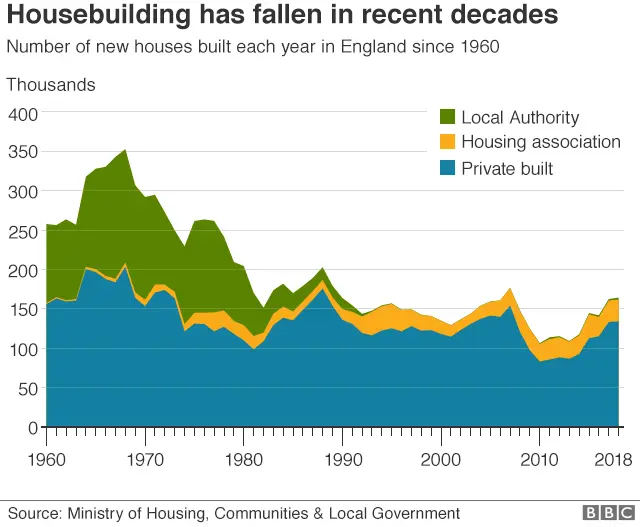
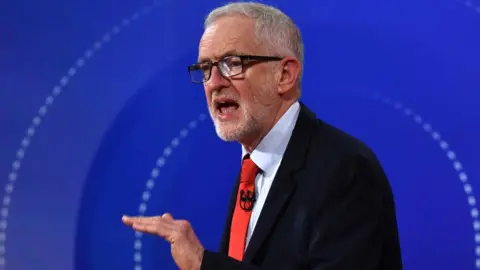
Claim: Jeremy Corbyn said "the biggest businesses will be asked to pay a little bit more in corporation tax but it will be lower than in 2010 and indeed lower than the average for most industrial countries".
Reality Check: Labour's manifesto states that it plans to increase corporation tax (which is the tax companies pay on profits made in the UK) from 19% to 26%, over three years. In 2010-11 corporation tax stood at 28%. On the question of whether "it will be lower than the average for most industrial countries": if you look at the G20 list of the biggest economies in 2018/19, a rate of 26% would be lower than nine (including Germany and France) and higher than 13 (including Italy and US). Some of these rates could change, though, over the next three years.

Claim: Jeremy Corbyn insisted that, under a Labour government, "95% of the population will pay no more whatsoever in tax. The top 5% will pay a bit more."
Reality Check: That's true when it comes to Labour's plans on income tax - but income tax isn't necessarily the only way people's overall wealth is affected. For example, Labour wants to scrap the marriage allowance. This tax break can be worth up to £250 to couples, depending on their joint income and other criteria.
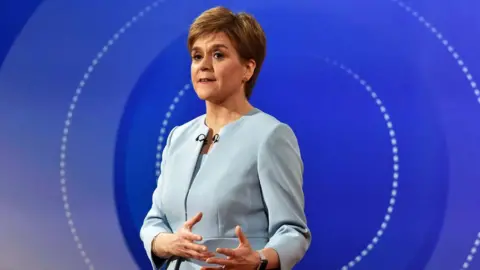
Claim: An audience member suggested to the SNP leader that Spain would not allow an independent Scotland to join the EU. Nicola Sturgeon claimed, in response: "...nor has Spain ever said that it would veto the membership of an independent Scotland".
Reality Check: Spanish foreign minister Josep Borrell told Politico in an interview in November 2018 that Spain would have no objection to Scotland re-joining the EU as an independent nation, as long as the independence process from the UK was legally binding.
In the run-up to the Scottish referendum 2014, there was a debate on whether an independent Scotland would be allowed to automatically continue the EU membership.
The then Spanish Prime Minister, Mariano Rajoy, a Conservative, said it wouldn't and it would have to apply for membership from the outside.
He did not, however, say that Spain would block an independent Scotland joining the EU.
Any country that wants to become a member of the bloc requires the unanimous agreement of all existing members before it is allowed to join.
Claim: Nicola Sturgeon said: "Scotland's deficit is falling. It fell by £1bn in the most recent year."
Reality Check: There's a lot of talk about the UK deficit, the shortfall between what the government gets in and what it spends. But the Office for National Statistics has figures that show how this shortfall is broken down across the nations and regions of the UK.
So is Scotland's deficit falling?
One issue that makes this tricky to assess is a disagreement between the Scottish and UK governments on North Sea oil and gas revenues. The Scottish government argues all this revenue should be allocated to Scotland for the purposes of analysing fiscal balances, while the UK government's position is that this revenue should be shared across the UK in proportion to the population.
The ONS publishes a regional breakdown of public sector finances according to either of these measures.
On the Scottish government's measure, "Scotland's deficit" has fallen from 2015-16 to 2016-17, and again from 2016-17 to 2017-18. If you take the UK government's measure, then although the Scottish deficit fell from 2015-16 to 2016-17, it barely changed from 2016-17 to 2017-18.
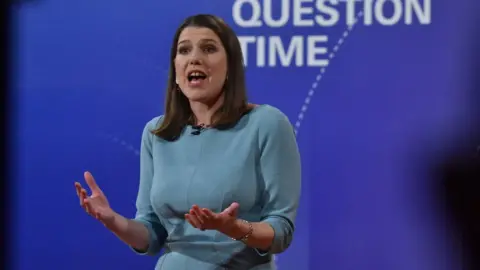
Claim: The Liberal Democrat leader Jo Swinson said: "If we remain then we will actually have more money to spend to be able to invest in our communities". She's talking about what the Lib Dems claim would be a "remain bonus" of £50bn from staying in the EU.
Reality Check: It's true that the vast majority of forecasts do expect the economy would be bigger if the UK were to stay in the EU. That would mean the government's tax take would be bigger.
But the Lib Dems' £50bn figure - over five years - cannot be predicted with any certainty. Also, it is not a hugely significant amount in terms of overall government expenditure. The last Budget, for example, estimated that the UK government would spend a total of £842bn in this year alone.
Claim: An audience member accused the Liberal Democrats of making "misleading suggestions" in their campaign. The Lib Dem leader said "I think all bar charts should be properly labelled. It should be clear what they are explaining."
The Lib Dems have used bar charts on their campaign literature trying to suggest the contests in particular constituencies are closer than they are, sometimes by using partial data.
In North Tyneside, for example, a graph on the 2019 European elections implies the Lib Dems received a majority of the votes, way ahead of the other parties.
But it omits the fact the Lib Dems were beaten by both Labour and the Brexit Party. The scale only goes up to 10,000, when the highest number of votes received, by the Brexit Party, was 17,944.
You can read more about this in our report into whether leaflets and ads on tactical voting are misleading people?

The BBC Question Time Leaders Special
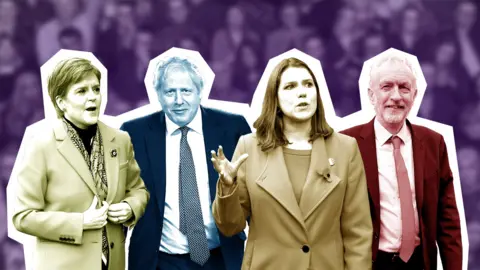
- FULL PROGRAMME: Catch-up on iPlayer
- VIDEO: The best bits, in three minutes
- FIVE MOMENTS: The key takeaways
- ANALYSIS: Laura Kuenssberg's take
- TWITTER REACTION: Audience gains social media respect

